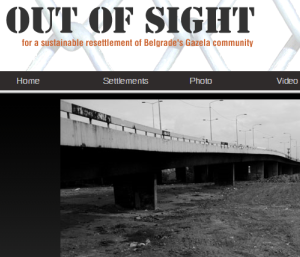Gazela Bridge rehabilitation, Belgrade, Serbia
a
Summary
With a population exceeding one and half million people and an outdated urban plan that is unable to absorb increasing volumes of passengers and cargo transport, Belgrade is facing a critical traffic situation. Plans for a bypass of Belgrade and the rehabilitation of the bridge on the E70/E75 highway crossing have been revived in order to move transit traffic out of the city.
However, serious shortcomings for preventing and mitigating negative environmental and social impacts – specifically resettlement issues – have been recorded during the projects’ assessment process.
Serbian authorities are in danger of repeating the mistakes from Gazela in a new project bearing an uncanny resemblance to Gazela - in an area known as Belvil. And they are again set to receive funding from the EIB and EBRD.
Both the European Investment Bank (EIB) and the European Bank for Reconstruction and Development (EBRD) are involved in the project and thus at least indirectly in a resettlement process that includes the discrimination of Roma families who have been threatened, evicted without proper consultation and in many cases resettled to remote places, usually without access to work, and some without sufficient hygienic installations.
Resettlement went ahead with deficient planning
In August 2009 the predominantly Roma families from the Gazela informal settlement in Belgrade were resettled to temporary accommodation at four sites in Belgrade area. 61 families were sent back to their home towns in the south of Serbia.
Serbian authorities followed a Resettlement Action Plan (RAP) that does not include measures regarding long-term housing, education and employment. Visits to the four sites – Rakovica, Mladenovac, Barajevo, Cukarica – revealed that the living conditions, the access to jobs and to education urgently need to be addressed if the IFIs are to disburse financing and the projects are to go forward.
Resettlement is not the end of the story
Through dialogue with affected people, city authorities and bank representatives Bankwatch is promoting participatory and transparent consultations on the projects, particularly where resettlement is at stake. These must ensure that resettlement or compensation processes are inclusive and ensure benefits for all project-affected people.
At the least, adherence to the World Bank’s Operational Directive on Involuntary Resettlement, which has been accepted by EIB and EBRD as an operational standard, would mean a step forward in this regard.
In general, much better coordination still needs to be established between the IFIs involved in the projects, the Belgrade city authorities, interested NGOs and the affected population. Sound solutions must be found for resettling and compensating the population.
This solution needs to take into account the real needs, abilities, knowledge and future sustainable life of the affected populations in both of the envisaged resettlements.
For more information, contact Zvezdan Kalmar, the Bankwatcher from Center for Ecology and Sustainable Development (CEKOR), Serbia, monitoring the project's development.






